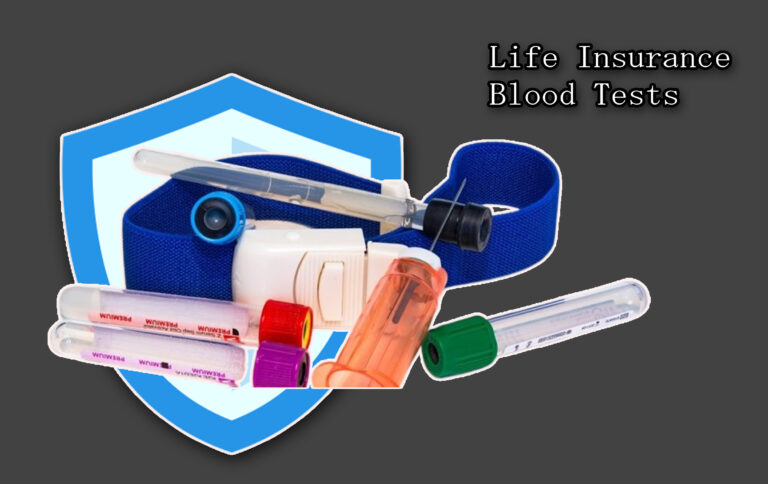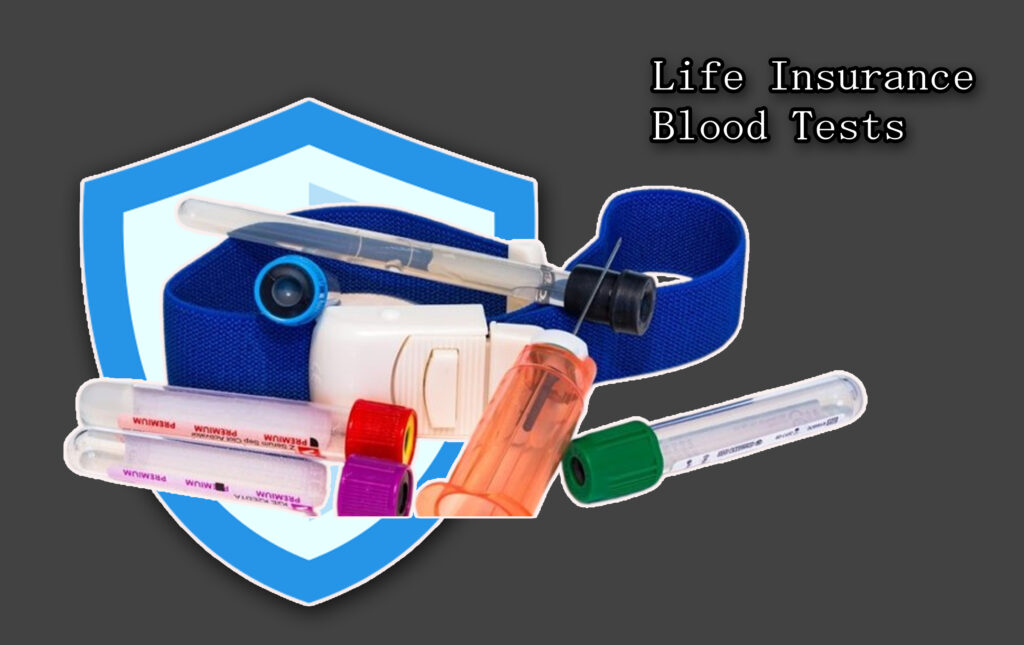
Life Insurance Blood Tests – When you apply for life insurance, one of the most important steps in the underwriting process is the medical exam, which often includes a blood test.

This process might feel intrusive or intimidating at first, but the blood test plays a key role in helping insurers determine your health status, your risk level, and ultimately, the premium you will pay for coverage.
What’s more, it’s a standard part of many policies, especially for term life insurance and whole life insurance with higher coverage amounts.
Also, insurers use the results of these tests to evaluate your risk profile, which then influences whether you’re approved and how much your monthly or annual premiums will cost.
Why Do Life Insurance Companies Require Blood Tests?
Life insurance companies are all in the business of assessing risk. The more accurately they can assess your health and potential life expectancy, the better they can price your policy.
A blood test is what provides them with clinical data that gives insights into your physical condition, which is data that can’t be faked or hidden as easily as answers on a questionnaire.
What’s more, these tests help insurers verify the information you’ve given them and uncover any unknown health issues that could affect your longevity.
Even if you think you’re in good health, conditions like high cholesterol, diabetes, hepatitis, or signs of nicotine or drug use can show up in your blood work.
Why Do You Need To Do Blood Test To Get A Life Insurance Policy
The blood work itself isn’t random. It actually targets specific markers that are known to affect life expectancy and health risk.
Here are some of the most common things insurers tests for:
- HIV and AIDS : These are serious immune system disorders that can drastically impact life expectancy.
- Blood Glucose Levels – Elevated glucose can point to prediabetes or diabetes.
- Nicotine and Drug Use: Blood tests can detect nicotine, cotinine (a byproduct of nicotine), and illicit substances.
- Liver Function – Abnormalities in liver enzymes can signal liver disease, alcohol abuse, or other health problems.
- Hepatitis A, B, and C – Liver diseases that may indicate risky health behaviors or long-term complications.
- Cholesterol Levels – High LDL or total cholesterol levels increase the risk of heart disease and stroke.
- Kidney Function – Insurers will also check creatinine and other markers to ensure your kidneys are in perfect working conditions.
- Cardiovascular Markers – Some insurers may test for proteins or other compounds linked to heart disease risk.
How To Prepare For Your Life Insurance Blood Test
Actually, you can easily prepare for the exam and possibly improve your results. Insurers are looking at current health status, not your life history.
Hence, the way you treat your body in the days leading up to the test matters. Here are steps to follow to prepare for your life insurance blood test:
- Try fasting for 8–12 Hours.Many tests, like glucose and cholesterol, are more accurate when you’ve fasted.
- Drinking water helps your veins be more accessible and improves test results.
- Avoid fatty and sugary foods as they can temporarily spike blood sugar and cholesterol.
- At least 24 hours before the test, avoid smoking, drinking, or using recreational drugs.
- Sleep actually helps your body stabilize hormones and inflammation markers. So, try and get a good night sleep.
- Avoid intense workouts as they may increase protein levels in your urine or affect other metrics.
Lastly, let the technician know what prescriptions or supplements you’re on, as they may influence results.
What Happens If You “Fail” the Blood Test?
Failing a life insurance blood test doesn’t necessarily mean you’ll be denied coverage. It simply means your health profile doesn’t meet the criteria for the best rates, or that you may fall into a higher-risk category.
In such cases, insurers may simply:
- Ask for additional testing or medical records.
- Offer you a policy with higher premiums.
- Delay your application for further review.
- Recommend a simplified or guaranteed issue policy (that doesn’t require medical exams).
You always have the right to request a copy of your blood test results and consult with your doctor. In some cases, you can reapply after taking steps to improve your health.